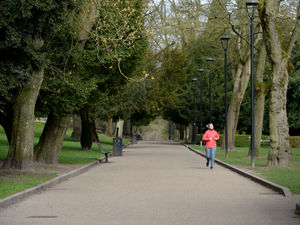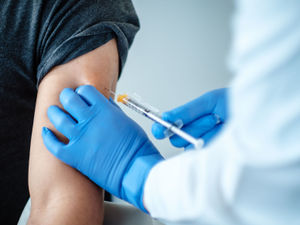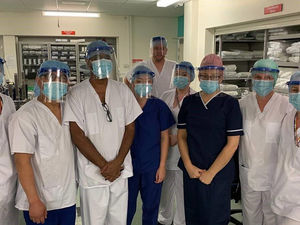Shropshire physiotherapist warns against 'over-zealous' exercise as lockdown eases
The easing of Covid lockdown, lighter nights and the warmer weather may have encouraged bike riders and runners to hit the roads and tracks, but a Shropshire physiotherapist has warned people must recognise when to apply the brakes.

Steve Briggs, lead clinician at Shifnal based SB Sports Injury and Physiotherapy Clinic, warns that over-zealous exercise can result in injury and people must learn to read their bodies in order to realise the difference between good pain and bad pain.
He said: “It is great that people can get out and about and exercise longer and harder now, because this not only has the potential for improving physical wellbeing but also mental wellbeing, as stimulating the body stimulates the brain.
“However, after a period of lower activity you may be less supple than you once were, so it is important to recognise the signals your body is giving out, understand what they mean, respect them, and act accordingly.
“If you experience some discomfort after exercising, you need to identify whether the discomfort is exercise related muscular soreness or whether it is pain, because the two things are very different and continuing to exercise when you are in pain may cause real damage.
“Understanding personal pain is particularly helpful in managing it, as different levels of pain tolerance and fitness, age, baseline strength etc mean the degree of an injury does not always reflect the same degree of pain."
He says good pain is what physiotherapists call ‘delayed onset muscle soreness’.

"This can happen when you challenge a muscle to do something it is not used to doing or has got out of the habit of doing," Steve said.
"A day or so after doing whatever it is, the muscle may feel sore and tender to touch but then the pain goes away. This is known as micro trauma.
“Micro trauma can even have benefits if it is caused by exercise, because as the muscle repairs it increases in strength and builds denser tissue to cope with further endurance. Good pain is however always relative to muscles."
Steve says joint pain, however, is never good and relates to injury.
“Learning to read your body and identify what type of pain you have may take time," he added.
"If you are not sure what type of pain you have, you should seek medical advice as you may be suffering from an injury and need help with recovery.
“Even if you have bad pain you can usually still exercise in some form or other, and you should, but if you are not confident about it your physiotherapist can help identify what is and what is not suitable for you.”





